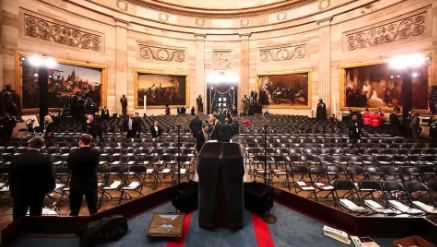CENTCOM Commander Steps Down After Leading Successful Strikes on Iran’s Nuclear Sites
General Michael “Erik” Kurilla, the seasoned commander known to his troops as “The Gorilla,” has officially ended a distinguished four-decade military career after three years at the helm of U.S. Central Command (CENTCOM). His tenure will be remembered most for directing President Donald Trump’s decisive June airstrikes on Iran’s nuclear facilities—an operation that reshaped the strategic balance in the Middle East.
Kurilla’s departure marks the end of an era for CENTCOM, the nerve center of U.S. military operations across the volatile region. His successor, U.S. Navy Admiral Charles Bradford Cooper Jr., assumed command earlier this month following his appointment by the administration, according to The Daily Mail. Cooper now inherits a complex regional landscape defined by lingering tensions between Israel and Iran and a rapidly evolving security order.
While the Pentagon has not disclosed the reason for Kurilla’s retirement, the timing has raised questions inside defense circles. The general had reportedly enjoyed the full confidence of Defense Secretary Pete Hegseth, who had given him unusually broad operational latitude during the height of the summer’s Iran-Israel confrontation. Hegseth was said to have deferred both key decisions and public communications to Kurilla, reflecting deep trust in his judgment and experience.
Kurilla’s exit also comes amid turbulence within the Defense Department. Just weeks earlier, Hegseth dismissed Lt. Gen. Jeffrey Kruse, director of the Defense Intelligence Agency (DIA), following suspicions that Kruse—or someone in his office—leaked an internal damage assessment on the Iran strikes. The document, obtained by several media outlets, suggested that U.S. attacks may not have completely destroyed Iran’s nuclear program. Kruse’s firing was part of a broader shake-up at the Pentagon, signaling Hegseth’s effort to consolidate control and eliminate perceived breaches of discipline.
In June, President Trump confirmed that he had authorized coordinated strikes on three of Iran’s most sensitive nuclear sites—Fordow, Natanz, and Esfahan—after weeks of escalating hostilities between Tehran and Jerusalem. The strikes involved the use of 12 30,000-pound GBU-57 “bunker buster” bombs and 30 Tomahawk cruise missiles, weapons specifically designed to penetrate hardened underground facilities.
The operation was hailed by the administration as a major success, with Trump declaring that the U.S. had “eliminated the world’s most dangerous nuclear threat.” However, a subsequent CNN report, citing a DIA assessment, claimed that while the strikes caused significant damage, they may have delayed Iran’s nuclear program by only a matter of weeks. What the report failed to emphasize was that the DIA itself characterized the assessment as “low confidence,” reflecting uncertainty in the intelligence due to the difficulty of verifying damage inside Iran’s fortified facilities.
Kurilla, who had developed a reputation among peers as a deliberate and data-driven commander, had long warned that Iran’s nuclear ambitions required constant vigilance and sustained deterrence. He was instrumental in persuading the administration to authorize a large-scale U.S. military buildup in the Middle East earlier this year, including the deployment of additional aircraft carriers, strike aircraft, and air defense assets. The rapid approval of his recommendations highlighted both the urgency of the regional threat and the Pentagon’s faith in his leadership.
Under Kurilla’s command, CENTCOM navigated one of the most volatile periods in its history—marked not only by renewed confrontation with Iran but also by shifting alliances, persistent insurgencies, and heightened regional competition from Russia and China. His tenure combined aggressive operational readiness with careful risk management, earning him respect across the military establishment.
In his farewell remarks this week, Kurilla expressed gratitude to the men and women under his command and confidence in his successor.
“I know that under the leadership of Admiral Brad Cooper, with the support of the Defense Department and Joint Staff, the counsel and contributions of our allies and partners, and the support of our headquarters and component teams, the Soldiers, Sailors, Airmen, Marines, Coastguardsmen, and Guardians of Central Command who serve this nation on the front lines of freedom will always succeed,” Kurilla said.
He concluded on a personal note that reflected both humility and pride in service:
“It has been the honor of my life to have been their commander.”
As CENTCOM transitions to new leadership, Kurilla’s legacy will remain defined by his steady command through crisis, his insistence on military readiness, and his role in executing one of the most consequential operations in recent U.S. military history—the strikes that targeted the heart of Iran’s nuclear ambitions.

